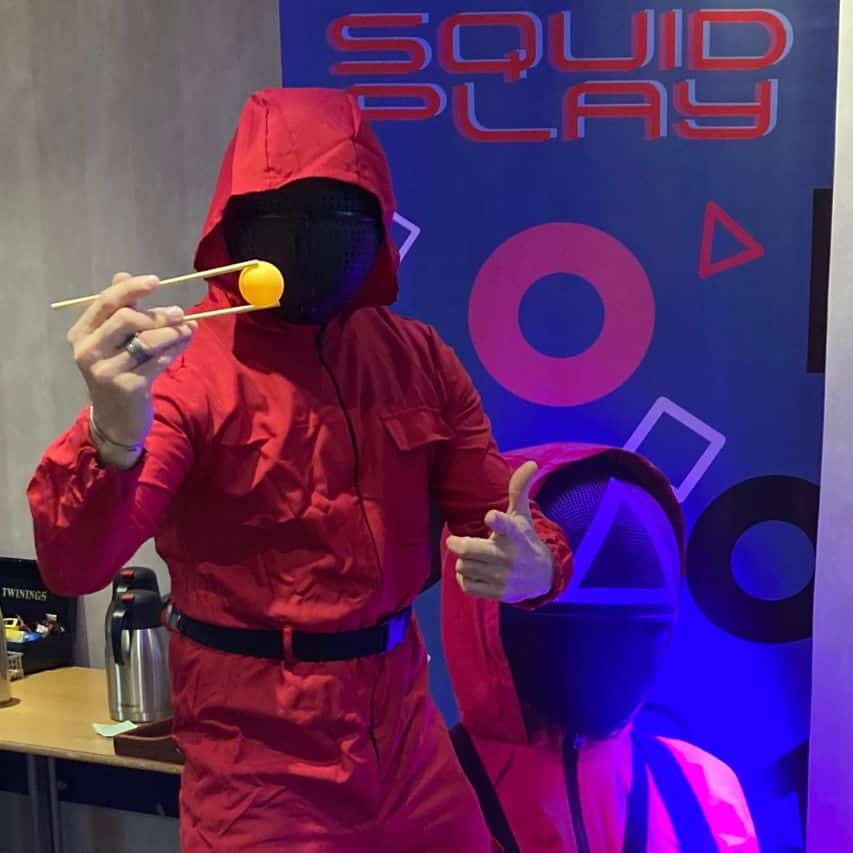What are “corporate events for team building”?
At its simplest, a “corporate event for team building” is a gathering organised by a business with the specific intention of strengthening teamwork, communication, trust and engagement — rather than simply socialising.
It might take the form of a one-day off-site, an intensive afternoon challenge, a hybrid session mixing in-person and remote participants, or a longer retreat. The key is the purpose (team building) and the structure behind it — not just “let’s go for drinks”.
As one source puts it: it’s about creating a bonded team who can work together towards a shared goal, aligned with company values. recruiters.theguardian.com
Why do corporate events for team building matter?
Here are some of the strongest reasons:
-
Better communication & collaboration: When people from different departments or levels work together outside the usual day-job, they build empathy and understanding. BetterUp+1
-
Boosted morale & engagement: Employees who feel valued and included tend to feel more positive about the company and more willing to give discretionary effort. recruiters.theguardian.com
-
Stronger culture and alignment: Team building helps align individual behaviours to company values, creating cohesion. DPG
-
Innovation & adaptability: By stepping out of the normal environment, teams can explore new ways of working and brainstorming that carry back into the office. TeamOut
What types of corporate team-building events are there?
Here are some common formats:
-
Workshop / facilitated session: A provider (like us) leads exercises around communication, roles, problem-solving.
-
Challenge / activity day: Examples include treasure hunts, construction tasks, game-shows, creative builds (see our full list at the Zing page).
-
CSR-driven event: Combine team building with social purpose (e.g., building bikes for charity, supporting food banks).
-
Outdoor adventure / experiential: Structured activities in open space, fresh air, movement.
-
Virtual or hybrid: For remote/hybrid teams, using online platforms and adapted activities.
-
Social + team building blend: A more relaxed format that still has an objective, not just networking.
How to plan a successful corporate events for team building
Here’s a step-by-step guide (aligned with best practice) to remove the mystery:
1. Define your objective
-
What do you want the event to achieve?
-
Is it about onboarding new team members? Improving cross-department collaboration? Rewarding high-performers?
-
Setting clear “why” makes everything else easier. outbackteambuilding.com
2. Know your people & context
-
How many participants? Where are they based (remote, hybrid, in-office)?
-
What’s their comfort level with activities (some may prefer low-key options)?
-
What’s the budget and timeframe?
3. Choose the right format & provider
-
Align the activity to your objective and audience.
-
Look at the provider’s track record (for example, we, the team at Zing Events, deliver everything end-to-end).
-
Check logistics: venue, travel, equipment, accessibility.
4. Plan the logistics
-
Venue booking, catering, transport, risk assessment, timing.
-
If remote/hybrid, ensure technology works and all participants are included.
-
Ensure inclusivity: everyone can take part, whatever their physical ability or preference.
5. Facilitate well and debrief
-
The activity is just part of it — memory and behaviour change happen in the reflection/debrief.
-
Ask: What did we learn? How will we apply it?
-
Make it meaningful, not just “fun day out”.
6. Follow-through and embed the learning
-
Capture outcomes (feedback, insights) and tie them into work.
-
Encourage teams to carry forward the behaviours and connections formed.
What makes some corporate team-building events fail?
It’s not uncommon. The pitfalls include:
-
Lack of clarity: no real objective, so it feels like a gimmick.
-
Poor alignment: the activity doesn’t match the team’s makeup or culture.
-
One-off only: doing something fun once but not embedding change.
-
Forced fun: if people feel pressured, the benefit can backfire. Wikipedia
-
Logistics nightmare: lack of planning, travel delays, poor facilitation.
How to choose the right activity for your corporate team building event
Ask yourself:
-
What are our goals? (Improved communication? Creativity? Culture? Charity?)
-
What size is our group and what’s the mix?
-
What environment works best (indoor/outdoor/hybrid)?
-
What budget do we have?
-
What previous events have we done and how did they land?
-
What feedback do participants give?
If you’d like a closer look at activities, you might like our full list at our corporate team building activities page.
Frequently Asked Questions (FAQs)
Q: How long should a corporate team building event last?
A: There’s no one size fits all — it could be a 2-hour session, half-day or full day. The key is alignment with your goal and schedule.
Q: Does team building really improve performance?
A: Yes — research indicates that improved team bonding correlates with better communication, trust and productivity. recruiters.theguardian.com+1
Q: What if we have remote or hybrid teams?
A: Then you need an approach that includes everyone equally — virtual or hybrid formats, or physical events scheduled when people are together. Best practice emphasises inclusive design. WorkAdventure
Q: How do I measure the success of the event?
A: Use feedback surveys, behavioural indicators (e.g., improved cross-department communication), follow-up interviews, or observation of changes in how the team works together.
Q: Can we link the event to our business strategy?
A: Absolutely — the most impactful events are ones that reflect your organisation’s values, objectives and culture, not just “fun for fun’s sake”.








